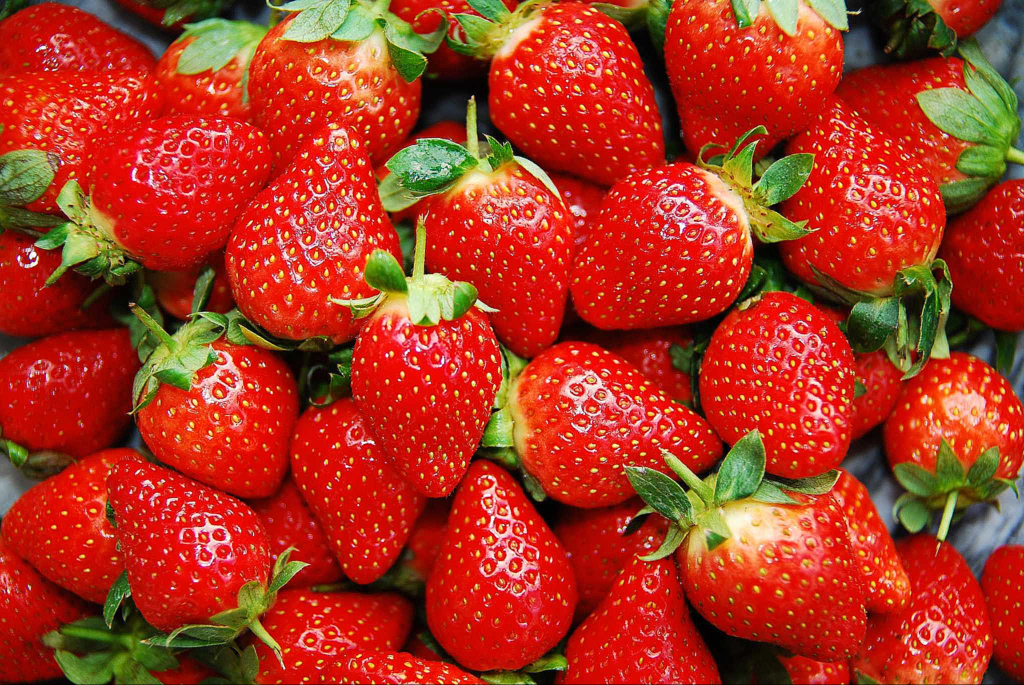Berries are among the healthiest food on this planet, but sadly, this is not a commonly known fact. Research has proven that eating certain berries a few times a week will offer curative properties that may help protect against a range of ailments from mental degeneration as a result of aging, to body-ravishing diseases like cancer.
Here are a few of the phenomenal health benefits of berries that have been supported by research.
- Blueberries are low in calories but high in nutrients. These berries are chock-full of fiber, vitamin C, K, and manganese. They are also high in antioxidants and help protect our bodies from damage that can contribute to aging and diseases like cancer. Blueberries are believed to contain the highest antioxidant capacity of ALL commonly consumed fruits and vegetables. They may also lower blood pressure in hypertension sufferers. There is some evidence that regular blueberry consumption can help prevent heart disease and it also has anti-diabetic properties that can lower sugar levels. They help boost memory and improve blood flow as well.
- Red raspberries contain ellagic acid, a compound that has exhibited anti-cancer effects. Ellagic acid contributes to a significant reduction in colon, esophageal, liver, lung, tongue, and skin cancers in studies. High in vitamin C and anthocyanins, red raspberries work as antioxidants that protect against heart disease and age-related mental decline.
- Blackberries have one of the highest antioxidant levels of fruits regularly tested. Blackberries are also rich in vitamin C and fiber, which have been shown to help reduce the risks of certain cancers. Blackberries are low in calories, carbohydrates and have no fat, which makes them popular in low carb and low-calorie diets. They also contain a phenolic compound shown to have not only anti-cancer but anti-viral and anti-bacterial properties as well.
- Strawberries enhance cognitive function, minimizes diabetic complications including kidney disease and neuropathy. The yummy berries also helps reduce heart attack risk and hypertension, helps prevent allergies and asthma, improves eyesight, strengthens the immune system, helps fight cancer, and congenital disabilities. Strawberries are naturally low in sugar, high in folate and potassium, and have more vitamin C per serving than an orange. Vitamin C can lower the risk for gout, high blood pressure, and cholesterol problems. Research has also shown that women who ate 16 or more strawberries a week had lower C-reactive protein (CRP), a measure of body-wide inflammation linked to arthritis flares and heart disease. Strawberries are also a good source of folic acid, which the arthritis medication methotrexate can deplete. Whew!
- Goji berries, just a handful in the morning will put a smile on your face for the rest of the day. Traditionally, they’re regarded as a potent food for longevity, strength and sexual potency. Low in calories, fat-free, a good source of fiber and a high antioxidant food, goji berry benefits include the ability to help you fight disease, effectively manage your weight and experience better digestion. Usually eaten raw, dried, or in liquid or powder form, versatile goji berries contain a wide range of phytonutrients, vitamins, and trace minerals, giving them the name “superfood berries” by health experts. These berries help to naturally treat diabetes, hypertension, infectious diseases, and common illnesses like the cold or a fever. Traditionally, they’ve also been used to help battle depression and anxiety or other mood disorders. The phytonutrients they contain help maintain skin and eye health. Thanks to their ability to reduce blood glucose, regulate cholesterol levels and keep triglycerides at levels your doctor will love, they’re also shown to help prevent heart disease. Have mercy!
- Cranberries are typically consumed at Christmas, but you should actually munch on them every day! The high in vitamin A, C and K berries are used to treat urinary tract and kidney infections and have been used for centuries by indigenous cultures. Today researchers have found that cranberries contain proanthocyanidins (PACs), which inhibit bacteria, including E. coli, from adhering to the urinary tract, thereby protecting it from infection. They offer improved immune function and are also rich in antioxidants that may play a role in preventing heart disease, cancer, and peptic ulcers by inhibiting H. pylori from adhering to the stomach. If you’re thinking drinking cranberry juice brings about the health benefits these berries are known for, well, think again! Cranberry juice, especially the juice concentrates you find at the grocery store, will NOT treat a UTI or bladder infection. It can offer more hydration and possibly wash bacteria from your body more effectively, but the active ingredient in cranberry is long gone by the time it reaches your bladder.
